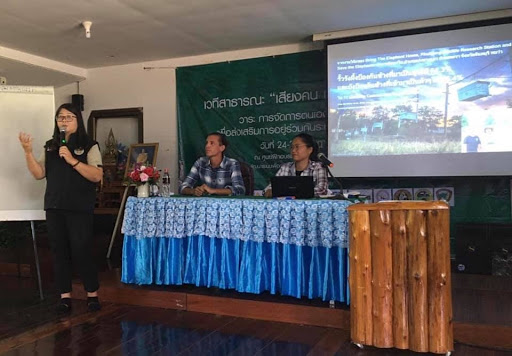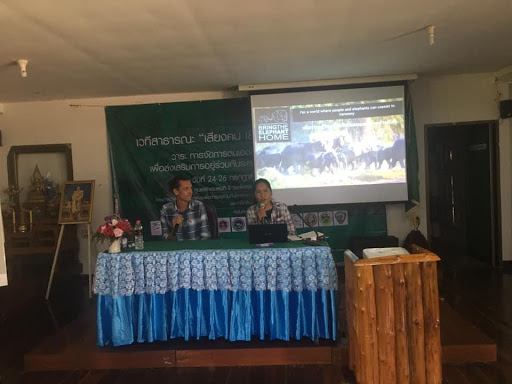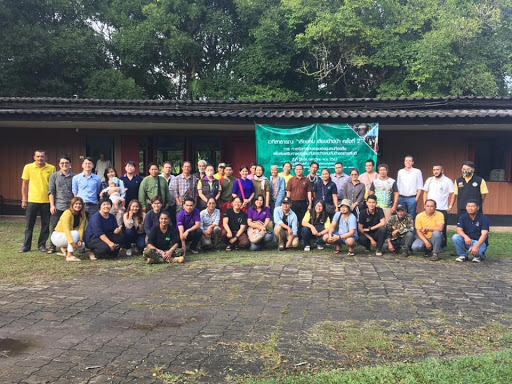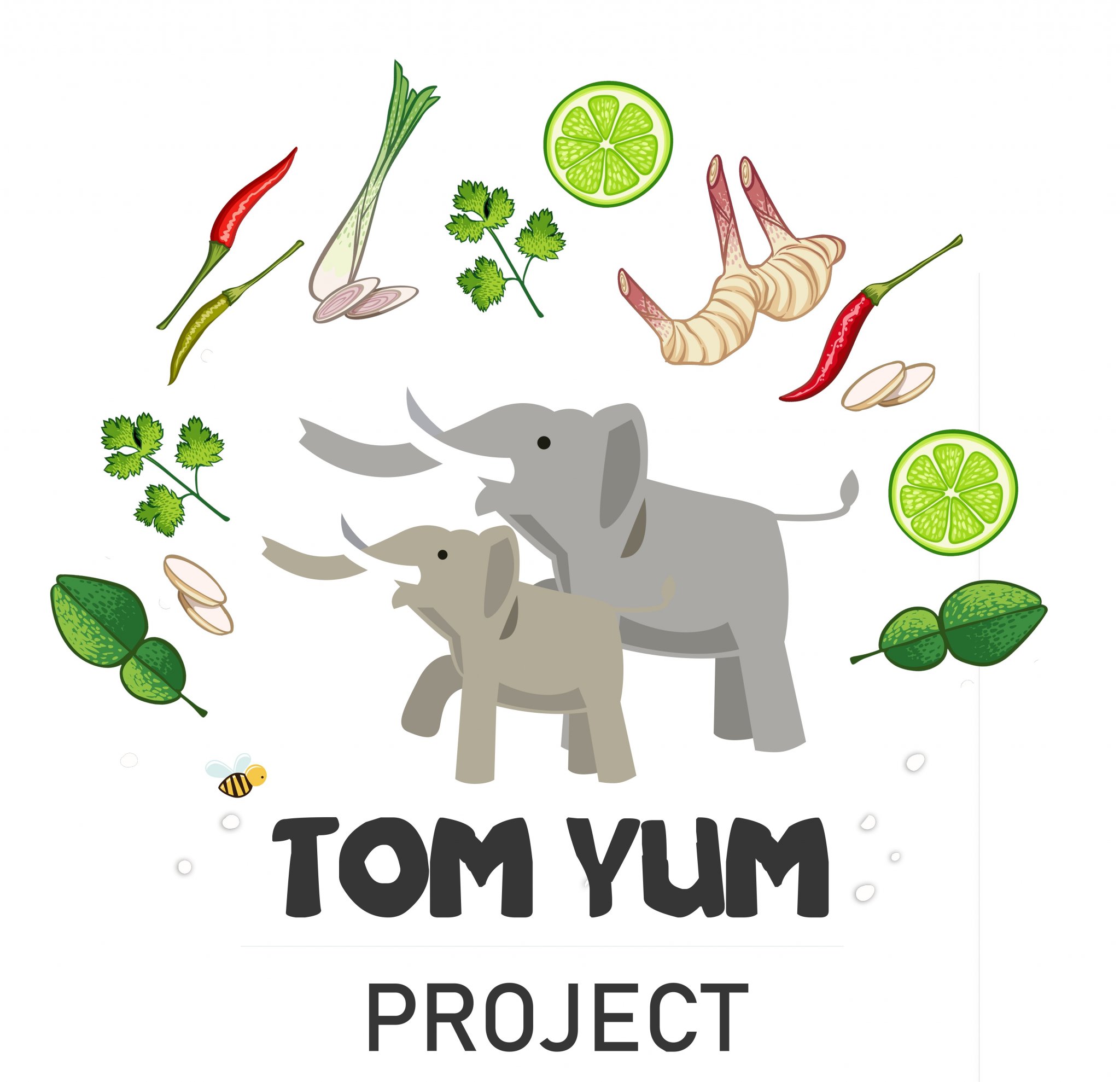Thailand, July 2020, update by David Owen. “Bring The Elephant Home was invited to attend and present at a forum at Khao Yai National Park. The event was organized by Human Elephant Voices and it brought together community leaders from regions experiencing human-elephant conflict as well as representatives from NGOs, the Department of National Parks and the Forestry Department.

The aim was to share experiences and collaborate on management strategies with stakeholders of all levels. Bring The Elephant Home’s presentation was about alternative livelihoods and community-based conservation. We were able to share findings from our paper about the effectiveness of beehive fences, which was recently accepted for publication in Conservation Science and Practice, and discuss the multitude of benefits that come with this holistic solution to HEC.

Also, we we presented details about the Tom Yum Project, a new initiative from Bring The Elephant Home, that supports farmers in planting crops that are unpalatable to elephants. In Thailand, sugar cane, corn, pineapple and other fruits are commonly grown, but these often require chemical treatments and are attractive to elephants.

The Tom Yum Project is based on research from other African and Asian countries where planting unpalatable crops decreased crop raiding, thereby preserving livelihoods of local people. The meeting attendees were excited about the Tom Yum Project’s goal to connect local products made from unpalatable crops with an international market. Our team is excited to explore this new method of empowering communities in HEC hotspots to take action and realize human-elephant coexistence.”
More about the Tom Yum project
‹ Back to previous page